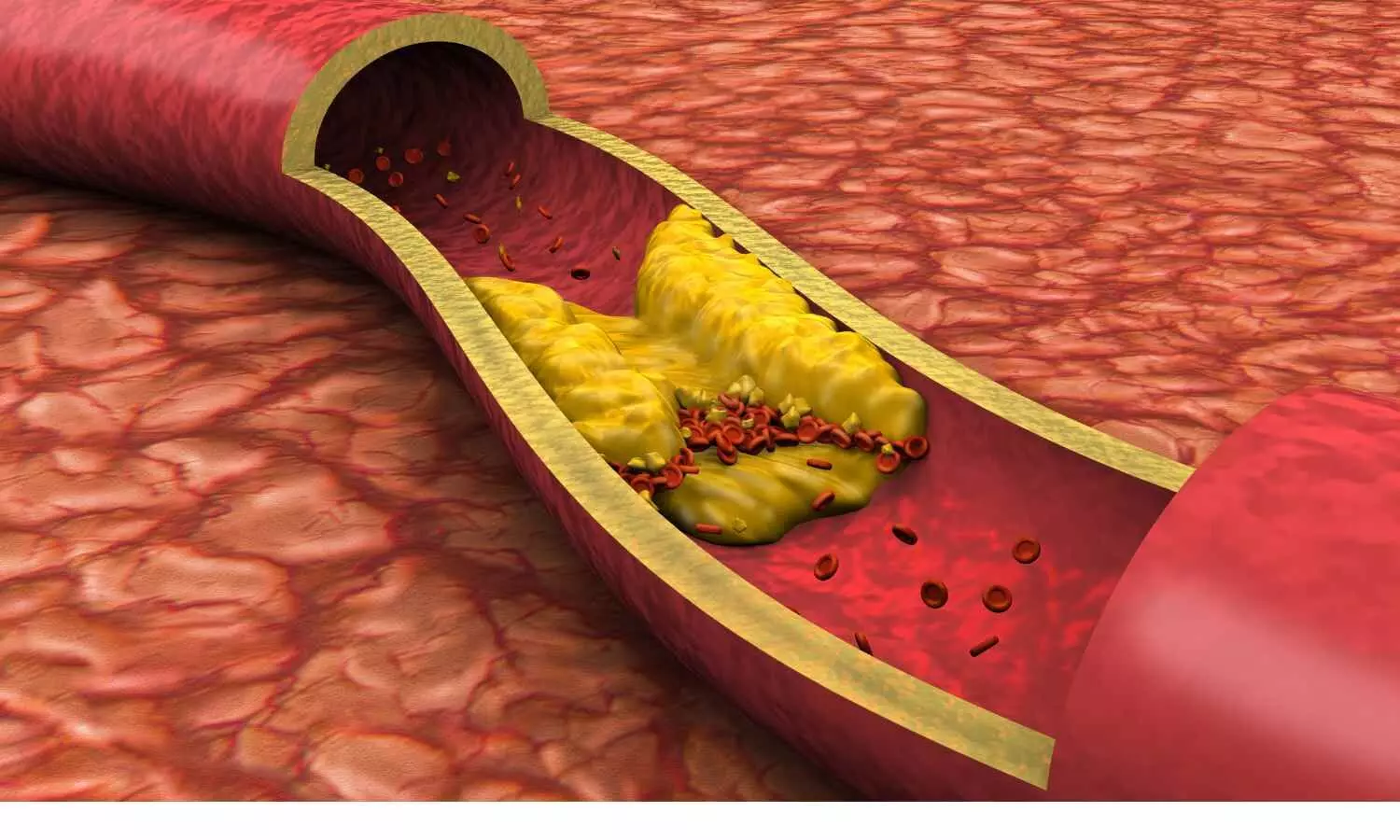Pregnant women with preexisting high cholesterol may have elevated CV risk, reveals study
- byDoctor News Daily Team
- 20 October, 2025
- 0 Comments
- 0 Mins

Preexisting hyperlipidemia inpregnancyis associated with heightened risks of obstetric complications and early cardiovascular events in the first five-years postpartum, according to a new study being presented at ACC’s Cardio-Obstetrics Essentials: Team-Based Management ofCardiovascular Diseaseand Pregnancy conference. The researchers call for clinicians to incorporate lipid screening into preconception care and closely monitor women with hyperlipidemia during and after pregnancy. “Pre-pregnancyhyperlipidemiais not just a metabolic concern; it is an early signal of increased long-term maternal health risk,” said Srijana Maharjan, MD, the lead author of the study and an internal medicine resident at Allegheny General Hospital in Pittsburgh. Hyperlipidemia (high cholesterol) occurs when there is an excess of lipids or fats in the blood, restricting the blood flow through the arteries and increasing the risk of heart attack or stroke. Historically considered a midlife condition, high cholesterol has become more common among younger women in response to the rising rates of metabolic syndrome, obesity and sedentary lifestyles. “The study aimed to evaluate whether women with pre-pregnancy hyperlipidemia face higher risks of adverse cardiovascular and obstetric outcomes compared to women without hyperlipidemia. Specifically, the team wanted to assess these risks over a five-year postpartum window, using a large U.S. multi-institutional dataset and rigorous propensity score matching to control for demographics and comorbidities,” Maharjan said. The authors used the TriNetX U.S. Collaborative Network to identify more than 10,000 women with pre-pregnancy hyperlipidemia across 66 U.S. health care systems. Participants included pregnant women with hyperlipidemia ages 18 years old or older between 2000-2020. The results found that women with high cholesterol had higher risks of arrhythmia, acute coronary syndrome, antepartum hemorrhage, gestational diabetes, labor and delivery complications, and hypertensive disorders of pregnancy. However, the authors did not note any significant differences in postpartum hemorrhage and maternal mortality risks. “Some outcomes were expected (higher risk of gestational diabetes and hypertensive disorders), but the clear link with arrhythmias and acute coronary syndromes within just five years postpartum was striking. It highlights that cardiovascular sequelae can manifest much earlier in this population than previously assumed,” she said. There are several factors that could contribute to these higher risks of obstetric complications and early cardiovascular events among women with high cholesterol. Higher lipid levels can accelerate atherosclerosis and weaken vascular reactivity, making patients more susceptible to cardiovascular complications like arrhythmias and acute coronary syndromes, the authors said. High cholesterol is associated with chronic systemic inflammation and promotes a hypercoagulable state or increased risk of developing blood clots, which could link to elevated risks of antepartum hemorrhage or obstetric embolism. “Obstetricians, internists and cardiologists should collaborate to integrate lipid management into preconception and prenatal care,” Maharjan said. Before conception, young women could benefit from early lifestyle interventions and preventive therapies. Further research is needed to confirm whether lipid-lowering interventions, such as diet, exercise, or statin therapy, before or during pregnancy could mitigate these risks.
Disclaimer: This website is designed for healthcare professionals and serves solely for informational purposes.
The content provided should not be interpreted as medical advice, diagnosis, treatment recommendations, prescriptions, or endorsements of specific medical practices. It is not a replacement for professional medical consultation or the expertise of a licensed healthcare provider.
Given the ever-evolving nature of medical science, we strive to keep our information accurate and up to date. However, we do not guarantee the completeness or accuracy of the content.
If you come across any inconsistencies, please reach out to us at
admin@doctornewsdaily.com.
We do not support or endorse medical opinions, treatments, or recommendations that contradict the advice of qualified healthcare professionals.
By using this website, you agree to our
Terms of Use,
Privacy Policy, and
Advertisement Policy.
For further details, please review our
Full Disclaimer.
Recent News
Lower ketone levels and improved exercise capacity...
- 01 November, 2025
Citrus Flavonoids effective nutritional adjunct to...
- 01 November, 2025
Daily kimchi intake linked to reduced BMI and bell...
- 01 November, 2025
Aggressive Risk Factor Management Reduces AF Recur...
- 01 November, 2025
Daily Newsletter
Get all the top stories from Blogs to keep track.


0 Comments
Post a comment
No comments yet. Be the first to comment!